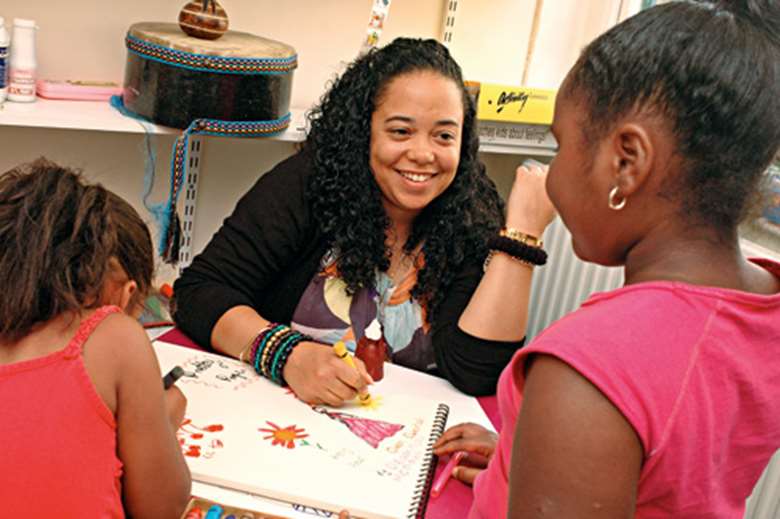Good Practice: How the CoreKids project is helping families affected by substance misuse
Friday, April 15, 2011
Since its creation in 2003, CoreKids has proven to be an invaluable resource for parents struggling with substance misuse.

Project CoreKids
Funding £120,000 a year in grants and donations. Funders have included The Pilgrim Trust, Tudor Trust, City Bridge Foundation, Paul Hamlyn Foundation, John Lyons Charity and St John Southworth Fund. HertSpeak was awarded £76,000 a year for three years by Comic Relief
Purpose To support families affected by substance misuse
Background Parental substance abuse can cause significant harm to children and families as a whole, which is why the Core Trust established the CoreKids scheme in 2003.
The scheme, now part of the Westminster Drug Project, aims to ensure children's safety and wellbeing, help adults to be more effective parents and improve family relationships.
Action There are five CoreKids services in different areas that work with families affected by substance misuse. One of these is HertSpeak, which was launched in 2009 with funding from Comic Relief and focuses on families affected by parental alcohol use.
The service originally covered Stevenage and North Hertfordshire, but now takes referrals from across the county. Referrals come via a range of professionals from children's services, schools, extended schools, housing and health.
Families can also self-refer, says team leader Simone Taylor. Families undergo an assessment before embarking on the scheme, which offers one-to-one parenting support, parenting groups, family therapy, couples therapy and individual therapy for parents, carers and young people.
The scheme works with families for six months on average, but may continue working with some individual children for longer. To date, HertSpeak has worked with 29 children and young people, 25 parents and carers with past or current alcohol problems and 14 other parents and carers. The fact that CoreKids works with families, rather than focusing on an adult with problems, is vital, says Taylor.
"The programme is also flexible in the way we work with families and where we work with them," she says. HertSpeak works with children's centres and other venues to ensure it can deliver support near to families' homes.
"When it comes to couples therapy, we're not just talking about mums and dads, but any two adults with caring responsibilities, so that could involve an ex-partner or a mum and daughter," she adds.
Outcome Evaluation of different CoreKids projects shows parents value the approach. For example, 100 per cent of parents who received one-to-one parenting support from CoreKids Marylebone between April 2008 and March 2010 gave the sessions nine out of 10 for usefulness. All felt their parenting skills had improved as a result. Eighty per cent rated family therapy sessions 10 out of 10 in terms of usefulness.
Parents say they have increased understanding of addiction and how it affects children, are better able to deal with conflict in the home and set boundaries for children, according to Taylor. CoreKids and the Mental Health Research and Development Unit - run by the University of Bath, and Avon and Wiltshire Mental Health Partnership Trust - have developed a tool to help evaluate results across three areas based on questionnaires completed by parents and carers. This allows researchers to score parents' assessments of their parenting skills and children's social functioning, emotional wellbeing and resilience and the level of concern they have about their children.
Early findings, published in February, found significant positive changes in parenting capacity and parental concerns. On average, parents' concerns scored 12.52 on a scale of 0 to 32, but the average score dropped to 6.12 after they received support from CoreKids.
Participants rated their parenting skills 21.46 before the programme, which increased to 25.29 after CoreKids' help. The project also uses techniques such as getting children to do before and after drawings, which also show positive changes.
If you think your project or programme is worthy of inclusion, email supporting data to andy.hillier@haymarket.com




